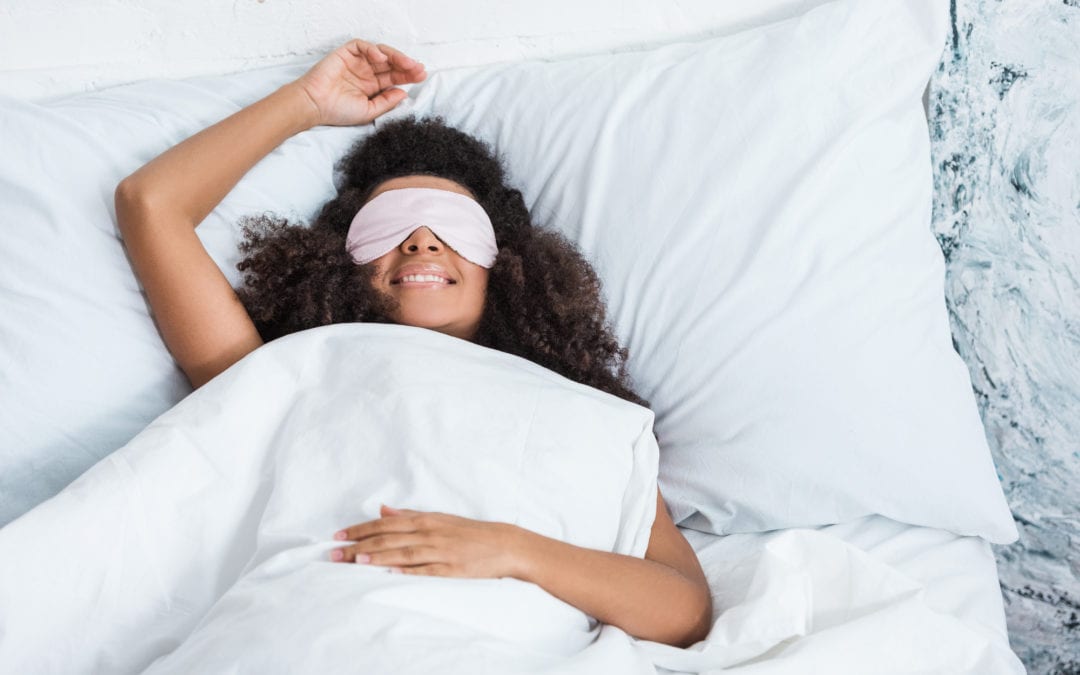When it comes to living healthy and being happy, few things are more important than sleep. Coupled with proper diet and nutrition, exercise, and positive relationships, good sleep can do wonders for you. The problem is, most Americans don’t get the sleep they need to be happy and healthy. Do you?
The Lowdown on Sleep
According to a study conducted by SleepFoundation.org, 45 percent of Americans report poor or insufficient sleep is affecting their daily activities.
“Overall health was highly associated with sleep quality,” the report states. “Sixty-seven percent of those with less than good sleep quality also report ‘poor’ or ‘only fair’ health, with 27 percent reporting otherwise ‘good” health.’ Low life satisfaction and high stress were also related to sleep quality.”
Sleep disorders, whether clinically diagnosed or the result of poor lifestyle choices, are overwhelmingly common. According to the American Sleep Association:
- Approximately 50 to 70 million American adults have a sleep disorder.
- 37 percent of 20-39-year-olds report inadequate sleep duration.
- 40 percent of 40-59-year-olds report inadequate sleep duration.
- The most common sleep-related disorders and issues include snoring, insomnia, and sleep apnea.
Poor sleep has a number of negative side effects and consequences -– particularly when it becomes a chronic issue. They include memory issues, mood changes, lapses in concentration and focus, weakened immunity, high blood pressure, weight gain, low sex drive, and heart disease and diabetes risk.
4 Tips for Getting Better Sleep
While there are underlying health issues that make sleep more difficult for some, most people can benefit from a few tweaks to their daily routines. Here are a few suggestions:
- Be Mindful of Light Exposure
Your body is regulated by a natural time-keeping mechanism known as your circadian rhythm. And this internal clock is heavily influenced by exposure to light. Natural sunlight helps keep the body awake, while darkness tells your body it’s time to sleep. And you need both to live well.
To improve your sleep quality, you should ensure you get adequate bright light exposure during the daytime. Then as your bedtime approaches, you should gradually decrease this exposure (particularly blue light from electronic devices). As light decreases, your body stimulates the production of melatonin, which helps your body relax and fall asleep.
- Develop a Consistent Sleep Schedule
Your body’s internal clock thrives on consistency. And over time, you can actually train your body to fall asleep and wake at roughly the same time every single day. The key is to develop a consistent and predictable sleep schedule.
If possible, try to maintain sleep and wake times that are within a consistent 20-minute window. In other words, go to bed every night between 10 p.m. and 10:20 p.m. and wake between 6 a.m. and 6:20 a.m.
- Try Vagus Nerve Stimulation
The vagus nerve is your body’s longest nerve. It traces from the stem of your brain all the way to the colon. Along the way, it impacts nearly every aspect of your body, including your taste, heart health, and digestive tract. It also influences your mental health, focus, and sleep quality.
By practicing regular vagus nerve stimulation prior to going to sleep, you can put yourself in a better state of mind to enjoy restorative sleep. This could empower you to wake feeling more refreshed and engaged.
- Watch What You Eat and Drink
Finally, be mindful of the food and drink you consume. Certain foods and drinks can aid your sleep quality, while others make it more difficult to fall asleep or stay asleep. Here are a few rules of thumb:
- Monitor your caffeine intake and avoid drinking coffee, tea, or sodas in the afternoon or evening hours (as it may hinder your ability to wind down).
- While alcohol can induce short-term drowsiness, it also has a negative effect on your overall sleep quality. (People who drink in the evenings are more prone to wake during the middle of the night.)
- Avoid eating too late in the evening. Stick to fresh foods, rather than highly processed foods, which can leave you feeling icky.
Putting it All Together
Stop compromising your health, well-being, and productivity. An extra hour of Netflix at night might not seem like a big issue, but you’re robbing yourself of hundreds of hours of sleep every year. By addressing this all-important aspect of your daily life, you can restore physical health, rediscover emotional balance, and finally live well.

Leave a Reply